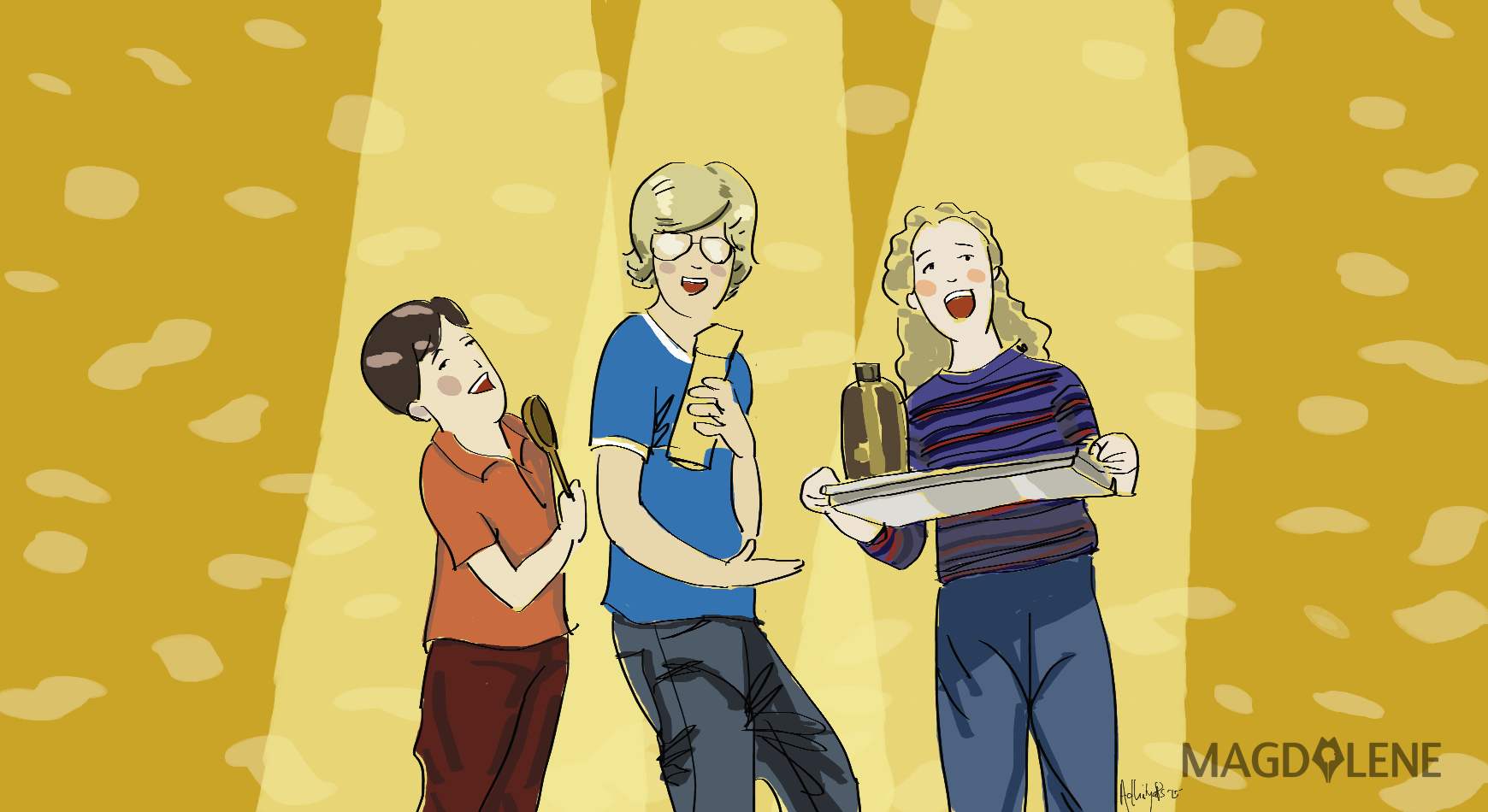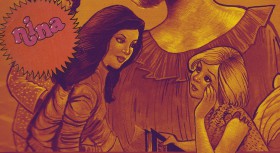“Mamma mia, here I go again
My, my, how can I resist you?
Mamma mia, does it show again
My, my, just how much I’ve missed you?”
Like clockwork, in her red house dress, a microphone in hand, my mother would start belting out the lyrics of the 1970s hit Mamma Mia from Swedish supergroup ABBA at exactly 3.45 p.m., right when I got home from school. She would have a solo karaoke session with half of ABBA’s greatest hits discography, including Dancing Queen, Gimme Gimme!, and Chiquitita. The only thing stopping her was the dusk prayer.
My mother would sit in our newly bought brown sofa, with the plastic cover forever intact, and sing those songs at the top of her lungs. Boy, did she love to sing. But Makassar is a small city with very minimal family entertainment other than some mind-numbing malls. And even though there were karaoke parlours, she was too shy to go. So my father bought a television set and a DVD player, which enabled his wife to sing karaoke songs to her heart’s content.
My mother has more than a dozen karaoke DVDs. It is not always ABBA. The catalogue also contained The Carpenters, Vina Panduwinata, and other 70s and 80s singers. She sang with so much conviction that you could hear her voice two houses down. Curiously, the neighbors never complained, including our next-door neighbor, a respected muslim cleric. Maybe because she has a beautiful voice. My mother used to be in her high school choir that was famous in our city.
Also read: I Like Women and My Mother Wants Me to Suffer Because of It
When she was done singing, she would perform the dusk prayer and then hog the computer to play a silly video game called Zuma. Forget about making dinner. My mother, a civil servant, barely cooked. We either ate Chinese food take outs or instant noodles that my older sister made for us. Meanwhile, my dad, the workaholic, ate dinner at the office and only came home after 9 pm.
But my mother would serve breakfast, which consistently consisted of white rice, an omelette, and – lo and behold – a bowl of instant noodle. If, once in blue moon, she was in the mood to cook, she would make us fried rice, ikan pallumara (a traditional fish soup) and canned sardines. These dishes were not exactly a culinary delight, but the rarity of the occasion made them special.
My siblings and I ate more instant noodles than we probably should growing up, but it did not bother us at all. At least we got to keep our pocket money and we were grateful for the food on the table. We also felt the same way about our mother's daily karaoke session. It made our normally dull and somber household in the quiet town of Makassar livelier.
Every Sunday, our Aunt Nur would join her sister and turn our living room into a karaoke bar in an instant. Aunt Nur is an even bigger music aficionado. She is the one who introduced my mother to the music of the world. Her taste and knowledge are much more sophisticated than my mom’s, but she never bragged about it. Whenever she came, she cranked up the cheerfulness in our home. The three of us children would eventually join them, singing numbers from Paul Anka in the 60s to contemporary ones from the likes of Westlife and Britney Spears in the 90s. Sometimes we stayed up until 1 a.m. to watch Queen's or Celine Dion’s music videos.
That period was one of the most joyful moments in my life. Not only was it fun, I also got to know many seminal pop classics. At school, when the boys mansplained about music as if no one else knew about The Beatles or Queen, I screamed internally. But I wanted to be like Aunt Nur, who is never a music snob, so I just nodded along.
Also read: Julia Suryakusuma on Mother, Motherhood, and Ibuism
When Our Musical Taste Diverge, So Do We
My mother and I are not close. We don’t have that ‘I told my mother everything’ type of relationships. When my friends were talking about their emotional bonding with their mothers, I could not relate. Sometimes we didn’t communicate at all, but at least we were connected through music.
However, the endless karaoke rendition came to a halt when my uncle fiddled with the DVD player until it broke. My mother was sad and furious, and she refused to buy another one. Instead, she got my sister to take music course to learn how to play keyboard. That way, she would be able to accompany my mother singing.
My sister Inul, like the dangdut singer, is super smart (she is now a medical doctor). She could read music notes, she remembered melodies easily, and she could play a complete song after learning it for only two hours. My mother was in seventh heaven that her first-born was somewhat a musical prodigy. She bought her music books and forced my sister to learn them. Thankfully, my sister loved old music. She exclusively listened (still does) to 70s to 90s songs, so she bowed to my mother's wishes. Thus, the era of evening karaoke sessions returned, except this time it was with live music accompaniment.
Also read: Can Women Have it All? Working and Mothering in Jakarta
My mother is an ambitious woman when it comes to her hobby (I wish she had the same inclination toward cooking). She didn't stop at my sister. She signed my brother up for piano lesson, while I soon followed with a guitar lesson. Maybe in her mind we could become the Makassar version of The Partridge Family (or Peter, Paul and Mary). But my brother is extremely stubborn, and he did not yield to her request of playing pop music, opting instead for classical music. I was even worse. I just learned the basics of guitar and the only thing I could play is a botched Hot Cross Buns. So, the new reign of homestyle live music bar didn't last long. My mother only sang on the weekends when Inul was not busy doing teenager things.
I felt bad for my mother. She couldn’t do the one thing she is passionate about without her children who by now had their own lives and listened to their own music. Those old days of Rasputin by the Euro-Caribbean disco band Boney M blasting in the car stereo had been replaced by Destiny’s Child, Pussycat Dolls, and Hillary Duff – courtesy of yours truly. The only small window she could play her songs is through compilation CDs consisting of Mariah Carey, Michael Learns to Rock, or Bee Gees.
As her music rarely played anymore, our old relationship built by music slowly faltered. While my siblings and I could understand her music, she couldn’t understand ours. Obviously, my mother could not get Fergie’s Fergalicious or My Chemical Romance’s Helena. Of course, I loved her music, but I also needed to discover my own musical taste, which is a mix of K-pop, folk, and dreampop. Our communication through lyrics and melodies only went one way.
We abandoned our mother’s dream of music one by one. Today our home has returned to its lonely and somber state. There is no trace of my mother’s love for music. In its place is another video game beloved by civil servants, Onet, or the voice of fundamentalists male clerics she would watch. No more ABBA and Mamma Mia, and, my, my, how much I missed them.








Comments